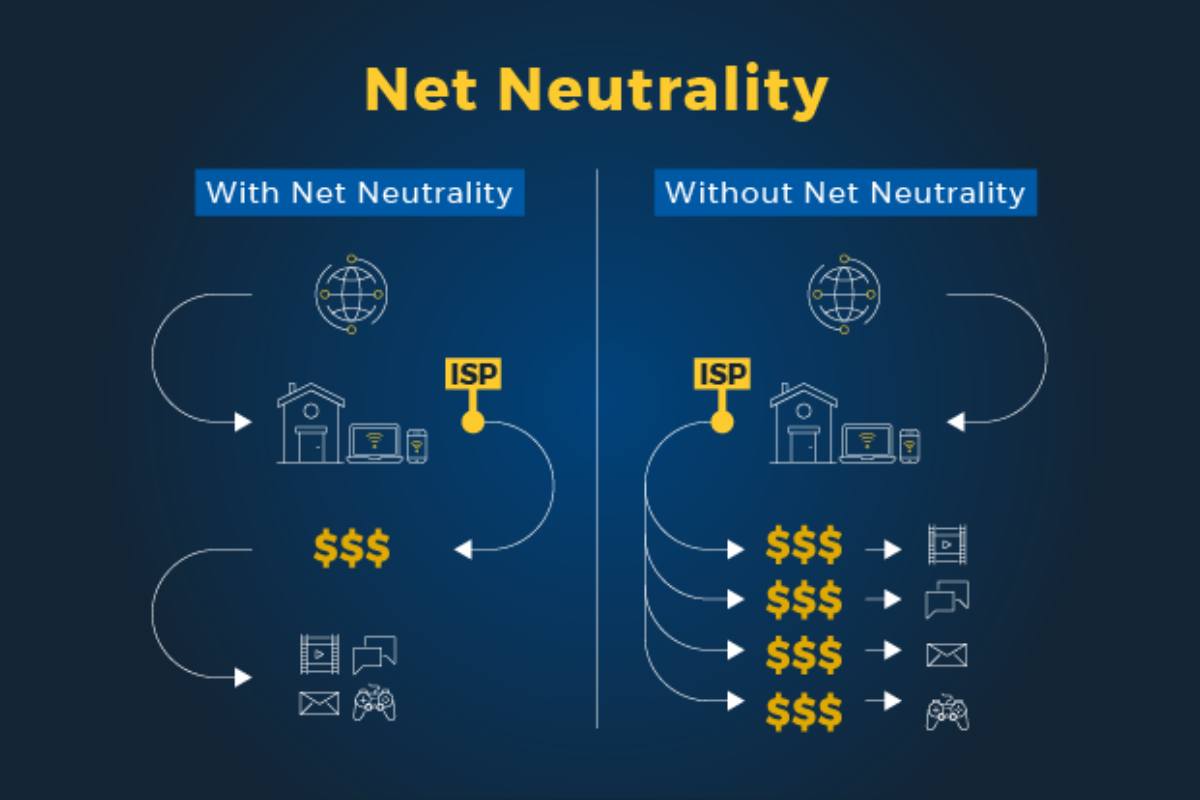Introduction
The internet was intended to be a democratic space; A space where people could access the information they needed at any time, use the services they wanted to without outside interference, and a place where companies and individuals alike could carve out their own niche if they wanted to. While the openness of the internet made it somewhat dangerous, as hackers and individuals with malicious intent could also easily reach potential targets online, the inherently democratic nature of the internet made it the last free market, a place where consumers could browse websites at will, window shopping hundreds of companies and services, before making a decision.
And while some companies had more money to spend on advertising than others, the choice was always in the customers’ hands. Net neutrality laws played a key part in preserving this marketplace, preventing corporations and internet service providers (ISPs) from taking action that would infringe on customers’ rights.
Nowadays, the internet is looking a little different. With the rollback of net neutrality laws that started to take place back in 2016, corporations have begun to take steps to regulate your internet access, paying off ISPs to create “fast lanes” for their products. Meanwhile, corporate products like the Amazon Firestick claim to be just as valuable as set-top box sets like Roku but restrict you from accessing hundreds of free TV and movie apps. With the abandonment of even the pretense of government oversight, customers have to take the preservation of their internet access into their own hands, preventing ISPs and companies from having a disproportionate impact on their ability to access the new free market.
Without further ado, here are a couple of ways you can protect yourself from corporate incursions on your digital space.
Jailbreak Your Devices
Jailbreaking your device just means reprogramming it, changing its coding, and removing unnecessary manufacturer restrictions that put limits on what kinds of third-party software work with your device.
That being said, the practice of jailbreaking devices is favored by many, as it doesn’t typically require you to spend a lot of extra money, and it allows you to get extra mileage out of tech you’ve already purchased. With devices like the Amazon Firestick, which is a set-top box set that could be just as functional as any other if not for manufacturer restrictions that limit your access to valuable apps, jailbreaking allows people to feel like they’ve finally gotten their money’s worth out of their device. What’s more, jailbreaking the Firestick is an easy, 30-second process that only requires you to change a couple of security settings, making it a favorite device for would-be jailbreakers. Before jailbreaking other, more complicated pieces of tech, try jailbreaking a Firestick to see how the process works.
Utilize a Virtual Private Network
Virtual private networks (or VPNs) are readily available resources for people concerned about ISP throttling and unwanted eyes spying on their internet activity. When used, VPNs create an encrypted channel through which servers are access, cloaking your IP address and keeping your internet activity private. While VPNs aren’t a substitute for antivirus software or other essential security measures, they can help keep your data safe when browsing on public networks, as well as keep your activity hidden from your ISP, the government, and any other potentially malicious would-be watchers.
While employing the services of a VPN can be expensive, they may be a worthwhile investment for many as technology continues to develop, and corporations and ISPs get more creative.
For the purposes of this article, the main reason to get a VPN is to keep your activity hidden from your ISP. While ISP throttling is still illegal under the remaining shreds of the previous net neutrality laws, providing “fast lanes” for paying corporations is not, and ISPs will likely slow down your access to any services that haven’t paid their premium anyways. VPNs keep your activity from your ISP, making it impossible for them to unjustly impact your service and freeing you to employ the services you want without interference.
Watching Your Own Back
While future administrations may resurrect net-neutrality laws and break these corporations’ hold on the FCC, nobody should expect the government to rescue them. Unfortunately, our laws are fluid, changing from term to term as technology continues to develop and people with interests in impacting our internet access gain power. Consumers will have to take matters into their own hands moving forward. This isn’t necessarily a bad thing, it’s just a fact of how things are shaping out to be and because of that, it’s ultimately, what you have to do to have a safe and enjoyable internet experience.
Hopefully, these two tried and true methods can help you breathe a little easier, carving out your own safe niche on the net.


